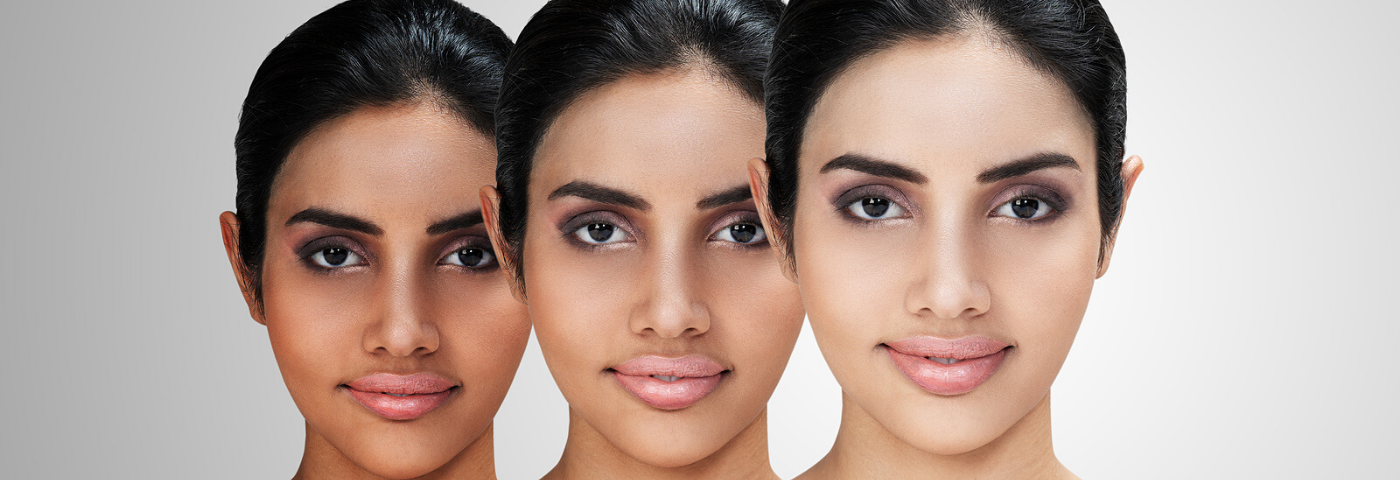With rising support for the Black Lives Matters cause, leading multinational beauty companies have been challenged over their marketing messages for skin lightening and whitening products.
At the beginning of June, US skincare brand Olay was one of the first to lend its support to the Black Lives Matter cause, stating in a corporate message sent across social media platforms that the brand stood against racism and injustice.
Olay sends a mixed message
Olay’s parent company, Procter & Gamble, put its money where its mouth is and pledged $5 million to civil rights causes.
But at the same time the company has continued to market skin whitening and lightening products under the Olay name on a global basis, with a focus on Africa, the Middle East and Asia Pacific.
Worldwide, consumers, activists and anti-racism campaigners turned the spotlight on the company’s mixed message, and it has drawn attention to similar positions made by other leading beauty brands and companies who have supported the Black Lives Matters movement.
A multi-million dollar market
Procter & Gamble is competing with all the major multinational beauty companies in the multi-million dollar skin whitening market, including the world’s biggest cosmetic company, L’Oréal, together with Johnson & Johnson and Unilever.
And although Procter & Gamble has chosen not to respond to the pressure, the other multinationals have.
Unilever’s top-selling skin whitening brand Fair & Lovely has been the target of campaigners for many years, and has come under increased scrutiny alongside the company’s support of the Black Lives Movement.
Fair & Lovely is no more
The company’s stand led to two separate petitions that each garnered more than 18,000 signatures, urging the company to stop producing the brand because of the damage it does to the perception and acceptance of darker skin tones.
In a company statement dated June 25, Unilever announced it would be dropping “fair/fairness, white/whitening and light/lightening” from all of its products, and would also be changing the name of its Fair & Lovely brand.
“We recognise that the use of the words ‘fair’, ‘white’ and ‘light’ suggest a singular ideal of beauty that we don’t think is right, and we want to address this,” said Sunny Jain, president of beauty and personal care at Unilever.
“As we’re evolving the way that we communicate the skin benefits of our products that deliver radiant and even tone skin, it’s also important to change the language we use.”
Similarly L’Oréal said it was ending the use of ‘white’, ‘fair’ and ‘light’ for its skin whitening products
Johnson & Johnson ends production
But Johnson & Johnson went one step further, pledging to stop manufacturing products with skin lightening or whitening claims, which includes its Nutrogena Fine Fairness line.
“Conversations over the past few weeks highlighted that the name of our Neutrogena Fine Fairness line may be perceived in an unintended way as it represents fairness as better than your own unique skin tone,” Johnson & Johnson said in a press statement.
“Grounded in the belief that healthy skin is beautiful skin, we made the business decisions to no longer sell the Fine Fairness product line.”
The impact on ingredients providers
Undoubtedly more radical moves such as the one made by Johnson & Johnson are likely to negatively impact demand for popular skin lightening and whitening ingredients, which includes kojic acid, vitamin C, alpha-arbutin and glycolic acid.
In tandem with this, growing consumer awareness about the ethical position of these products might lead to a rethink on whether or not they should be using these kind of products to change the colour of their skin.
But it is not just about skin lightening and brightening. Many consumers are still looking for skin care products that give them improved skin tone, a more even-looking complexion or to target blemishes/
In response to these type consumer skin care needs it is very likely that many of these ingredients will remain in demand, but ingredients providers will also have to be careful about what claims they make and will benefit from extra scrutiny concerning how these type ingredients are used.
There’s a range of marketing factors to consider, so let’s turn to personalisation and a question of balance.

